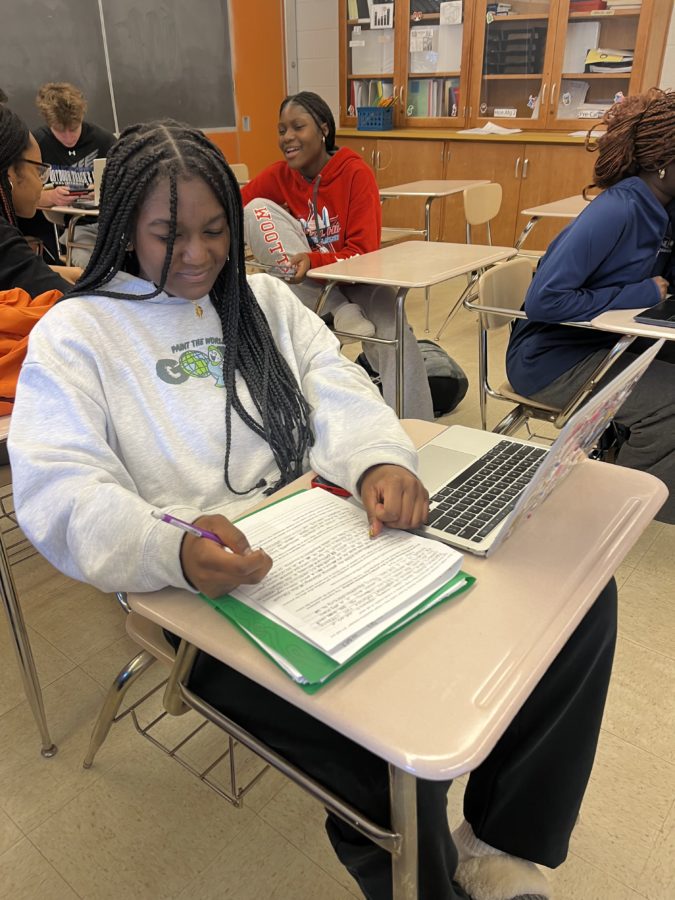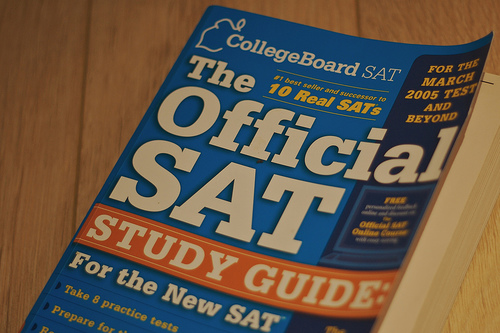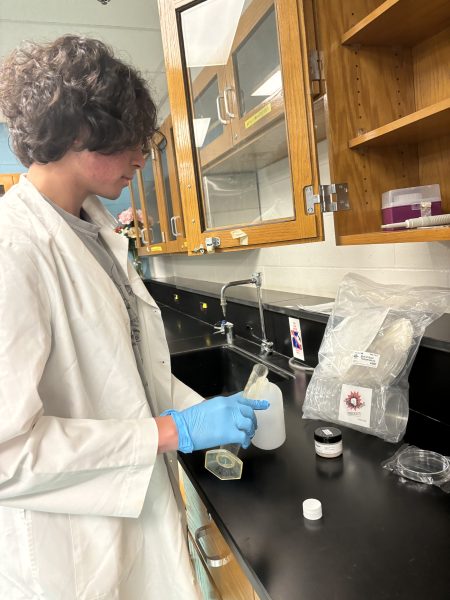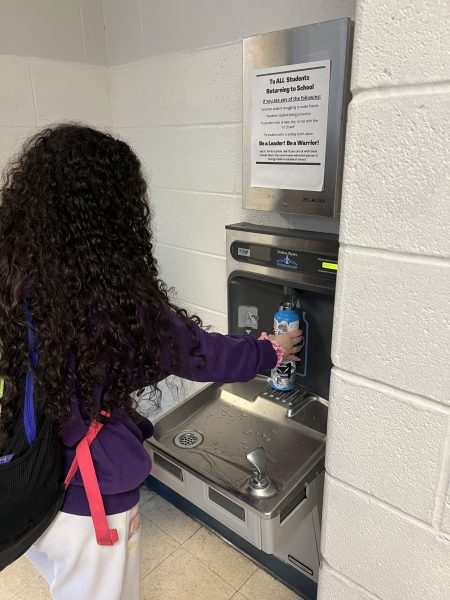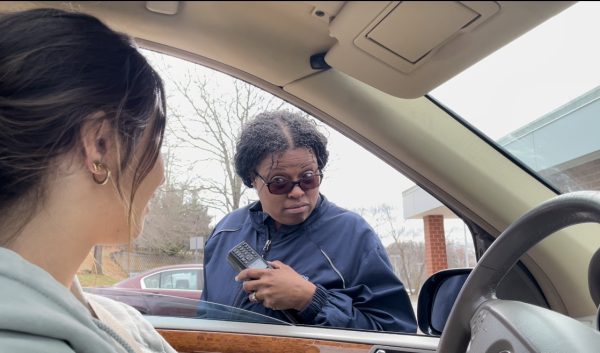Rolling along in March ‘Madness’
Junior Alexa Ntchobo utilizes homeroom time to do homework and take stress away from her at-home life.
As the winter drags on and it feels like there’s never enough sunshine, students’ mental health stays in a rut. This long winter slump falls every year around the same inconvenient time: the third quarter.
The period from winter break to spring break is the longest time of the school year without a significant break and is also often the time classes are at their peak difficulty. During the first quarter, people are adapting to the class and only at the beginning of their class load. Second quarter gets a little harder, but often students don’t care as much about getting Bs in classes they previously got As in.
Then, third quarter comes around. AP classes finish up their final units and all classes have solidified what they require. The mornings are cold and gloomy, and by the time sports are over it’s dark outside. The school year feels like it’s passing more slowly and it’s not close enough to the end for people to be eager for summer.
Sports add more complication to this issue. For students like junior baseball player Noah Parker, spring sports tryouts are in the third quarter. On top of the several AP classes Parker is taking as a junior, he has had increased stress levels due to having to figure out a new way to get his homework, studying, and practices done, while sleeping enough at night. “Sometimes it can get hard balancing sports and academics when classes are so hard and the days are only so many hours in a day. I’m still trying to find time to be around family and friends when I have so much thrown on my plate,” Parker said.
March in particular can be a stressful time. The month has 30 days and typically lacks three-day weekends or random days off. AP classes are getting to the last of what they’re learning, making it harder because lessons build upon themselves. Junior Alexa Ntchobo said, “March feels like the longest month of the year, and having the same schedule every day makes everything feel longer. If we had a five-period day with rotating periods or more of a concise week, I’m sure students’ motivation would begin to bounce back.”
No matter how much stress and work comes with third quarter, students are regularly reminded they are not alone. The school and the county have implemented resources for students to go to if they feel they need help. The county Signs of Suicide lesson is regularly presented in third quarter, where counselors say they see the most pressure on their students. Head resource counselor Arielle Markiewicz said, “We’re used to the flow of school so teachers’ expectations of students are higher and where they are in the courses are naturally harder. Motivation begins to lack and kids are just tired because it’s just a lot. Through all this, if you need help or support the counseling office is here to help all of our students, and to make sure they are taking care of [themselves].”
Different daily coping strategies can also help students push through this dreary time. Markiewicz said, “We talk to students all the time about taking deep breaths and writing things out to try to stay organized. Make sure to keep using coping skills like exercising, writing, listening to music, making artwork, and talking to trusted peers and adults to help get through the harder times. Know you are never alone.”
Your donation will support the student journalists of Thomas S. Wootton High School. Your contribution will allow us to purchase equipment and cover our annual website hosting costs.
Senior Maya Halpern is the back page editor in her third year on the Common Sense staff. In her free time, she enjoys dancing as well as hanging out with...


